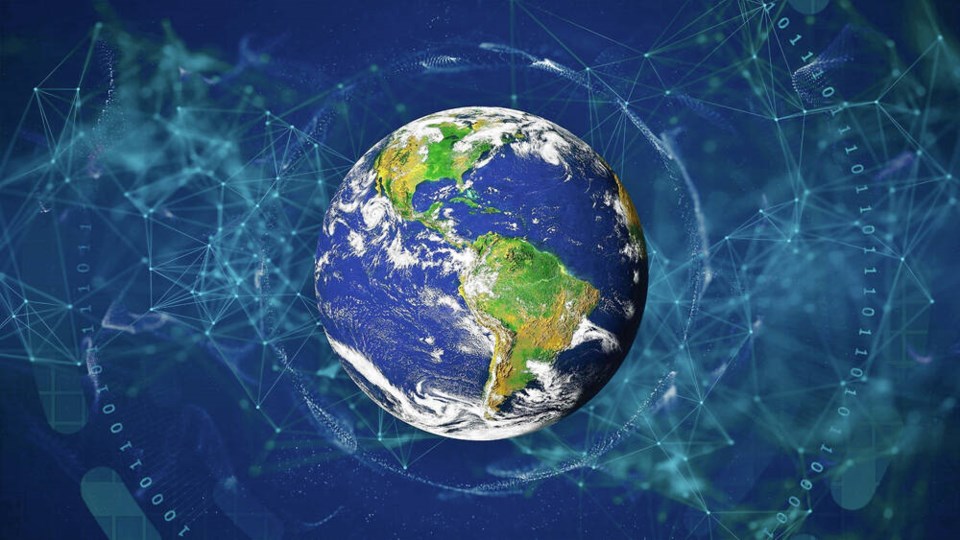Just a few days ago, Canada overshot its fair share of Earth’s biocapacity and resources, as measured by the ecological footprint in 2018, the latest year for which data is available.
By March 13, Canada had already consumed its fair share of the Earth’s bounty for the year. Collectively, humanity passed its 2022 Earth Overshoot Day on July 28.
So what does this mean? Well, first, we need to understand the concept of the ecological footprint, which is, put simply, a measure of “how much nature we have and how much nature we use,” as the Global Footprint Network puts it.
The amount of nature we have is measured in terms of a nation’s or the world’s biocapacity, which “represents the productivity of its ecological assets (including cropland, grazing land, forest land, fishing grounds, and built-up land).”
It reflects “the ability of an ecosystem to produce useful biological materials and to absorb carbon dioxide emissions.”
Because of its large land area and abundant forests, farms and fishing grounds, Canada has a large biocapacity.
But of course, a lot of that is exported, as the world depends upon Canada’s natural resources to meet its needs. In addition, a lot of it — forests and other natural areas — is not used directly by humanity and would seem to remain relatively untouched, although this is, in fact, the carbon sinks that absorb our carbon dioxide pollution.
The amount of nature we use, on the other hand, is measured as a nation’s or the world’s ecological footprint.
In a nutshell, this is the amount of bio-productive land needed “to produce the natural resources it consumes (including plant-based food and fibre products, livestock and fish products, timber and other forest products, space for urban infrastructure) and to absorb its waste, especially carbon emissions.”
Those ecological assets can be anywhere in the world, as we import food, raw materials and products from around the world and pump out carbon dioxide and other greenhouse gases.
Globally, the world had the equivalent of 1.6 hectares of bio-productive land per person in 2018, but collectively we consumed the equivalent of 2.8 hectares. In other words, at present rates of global consumption, it takes the equivalent of 1.8 Earths to meet our collective needs.
But Canadians, with our high incomes, high consumption of resources and high levels of carbon emissions, actually require the equivalent of 8.1 hectares of bio-productive land, or 5.1 times as much as is available per person, globally.
So if the rest of the world lived as we do, we would need another 4.1 planets, which we clearly do not have.
One way to look at this is that it is like every Canadian spending their annual income by March 13 each year and then living off loans, or everyone on Earth doing so by July 28.
Clearly, that is not sustainable for very long — and yet we seem to expect that every year, the Earth will somehow, magically, cover our ecological debt.
Moreover, in “borrowing” the equivalent of 4.1 planets’ worth of biocapacity, Canadians are consuming more of the Earth’s biocapacity and resources than we are entitled to, if everyone on Earth were to get their fair share.
In doing so we are, in effect, taking precious resources not only from others around the world who need them for their own human and social development, but from future generations and from other species.
Clearly, we only have one planet — no matter what fantasies crazed billionaires may entertain — and we need to learn to live on it.
The implications for Canada are profound. In particular, it means we need to reduce our footprint by 80 per cent, and quite rapidly, to become a One Planet Canada — a country that uses only its fair share of Earth’s biocapacity and resources.
I have only been able to provide an overview of the ecological footprint in this column. In my next column I will dig deeper into this important indicator. In particular I will look at what it has to say about our use of fossil fuels, and why it is itself an underestimate of our true impact on the Earth.
Dr. Trevor Hancock is a retired professor and senior scholar at the University of Victoria’s School of Public Health and Social Policy
>>> To comment on this article, write a letter to the editor: [email protected]



